The Blessing and Imposition of ASHES
Ashes had great meaning to God’s people in the Old Testament. Job sat in ashes and in Esther 4:1-2, ashes were used as a sign of mourning. Jesus alludes to them when He condemns the cities of Bethsaida and Chorazin for not doing penance. "If the miracles performed in you had taken place in Trye and Sidon, they would have repented long ago in sackcloth and ashes" (Matthew 11:21). The imposition of ashes on the forehead of communicants began in early Christianity as a symbol of purification, based upon the practice described in the book of Numbers and Hebrews. The practice had become obsolete until the 11th century when it was revived and practiced on the first day of Lent.
The priest vested in alb, stole and purple cope, stands at the Epistle side of the Altar, on which is placed a vessel containing the ashes to be blessed. The Choir first sings the following Antiphon:
Antiphon. (Ps. 68, 17.) Hear us, O Lord, for Thy mercy is kind: look upon us, O Lord, according to the multitude of Thy tender mercies. (Ps. 68, 2.) Save me, O God: for the waters are come in even unto my soul. V. Glory be…
Afterwards the Priest, standing at the Epistle side, without turning towards the people, with his hands joined, says:
P. The Lord be with you.
S. And with thy spirit.
Let us pray. O almighty and everlasting God, spare those who are penitent, be merciful to those who implore Thee, and deign to send Thy holy Angel from heaven to bless + and sanctify + these ashes, that they may be a wholesome remedy to all who, in humility, implore Thy Holy Name, and who accuse themselves, conscious of their sins, deploring their crimes before Thy divine mercy, or humbly and earnestly beseeching Thy sovereign goodness; and grant, by the invocation of Thy Most Holy Name, that whosoever shall be sprinkled with these ashes for the remission of their sins may receive both health of body and safety of soul. Through Christ our Lord. S. Amen.
Let us pray. O God, Who desirest not the death, but the repentance of sinners, look down most graciously upon our frail human nature; and in Thy goodness deign to bless + these ashes which we purpose to put upon our heads in token of our lowliness and to obtain forgiveness, so that we who know that we are bus ashes, and for the demerits of our wickedness are to return to dust, may deserve to obtain of Thy mercy the pardon of all our sins, and the rewards promised to those who repent. Through Christ our Lord. S. Amen.
Let us pray. O God, Who art moved by humiliation, and appeased by satisfaction, incline the ear of Thy goodness to our prayers and mercifully pour forth upon the heads of Thy servants sprinkled with these ashes, the grace of Thy blessing; that Thou mayest both fill them with the spirit of compunction, and effectually grant what they have justly asked; and ordain that what Thou hast granted may be permanently established and remain unchanged. Through Christ our Lord. S. Amen.
Let us pray. Almighty and everlasting God, Who didst grant Thy healing pardon upon the Ninivites doing penance in sackcloth and ashes, mercifully grant that we may so imitate them in behavior as to follow the in obtaining forgiveness. Through our Lord. S. Amen.
The Priest then sprinkles the ashes three times with holy water, saying the Anthem “Asperges me” and incenses them three times; after which, having first received the ashes on his own head, from the highest in dignity of the clergy, he proceeds to place them, in the form of a cross, on the heads of the clergy and people, saying to each:
“Remember, man, that thou are dust, and into dust thou shalt return.” (Genesis 3, 19.)
Meanwhile, the Choir sings (or the Priest recites) the following Antiphons and Responses:
Antiphon. (Joel 2, 13.) Let us change our garments for ashes and sackcloth; let us fast and lament before the Lord; for plenteous in mercy is our God to forgive our sins.
Antiphon. (Joel 2, 17; Esther 13, 17.) Between the porch and the Altar, the priests, the Lord’s ministers, shall weep and shall say: Spare, O Lord, spare Thy people; and close not the mouths of those who sing to Thee, O Lord.
Response. (Esther 13; Joel 2.) Let us amend for the better in those things in which we have sinned through ignorance, lest suddenly, overtaken by the day of death, we seek time for repentance and are not able to find it. Attend, O Lord, and have mercy; for we have sinned against Thee. V. (Ps. 78, 9.) Help us, O God, our Savior; and let for the glory of Thy Holy Name, O Lord, deliver us. Attend, O Lord. Glory be to the Father, and to the Son, and to the Holy Ghost. Attend.
When all have received the ashes, the Priest says:
P. The Lord be with you.
S. And with thy spirit.
Let us pray. Grant us, O Lord, to begin with holy fasts the duties of our Christian warfare, that, as we do battle with the spirits of evil. We may be protected by the help of self-denial. Through Christ our Lord. R. Amen.


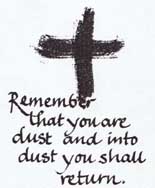






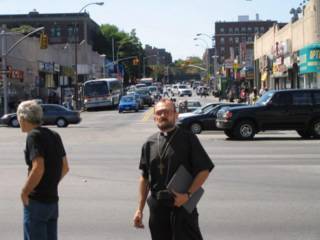












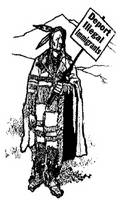
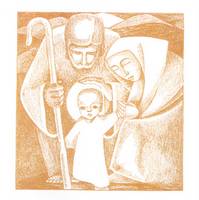



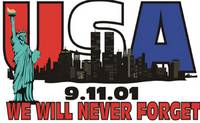




































0 Comments:
Post a Comment
<< Home